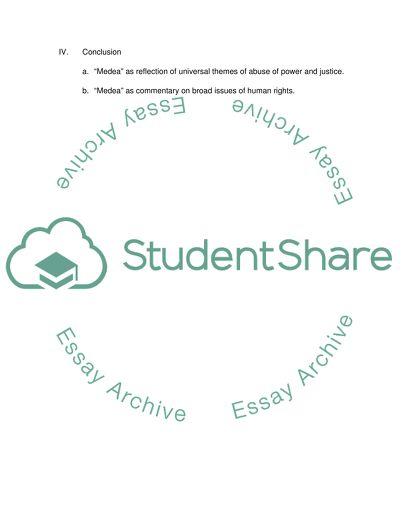Cite this document
(The Story of Medea Book Report/Review Example | Topics and Well Written Essays - 2250 words, n.d.)
The Story of Medea Book Report/Review Example | Topics and Well Written Essays - 2250 words. https://studentshare.org/literature/1521524-mythology-research-paper
The Story of Medea Book Report/Review Example | Topics and Well Written Essays - 2250 words. https://studentshare.org/literature/1521524-mythology-research-paper
(The Story of Medea Book Report/Review Example | Topics and Well Written Essays - 2250 Words)
The Story of Medea Book Report/Review Example | Topics and Well Written Essays - 2250 Words. https://studentshare.org/literature/1521524-mythology-research-paper.
The Story of Medea Book Report/Review Example | Topics and Well Written Essays - 2250 Words. https://studentshare.org/literature/1521524-mythology-research-paper.
“The Story of Medea Book Report/Review Example | Topics and Well Written Essays - 2250 Words”. https://studentshare.org/literature/1521524-mythology-research-paper.


